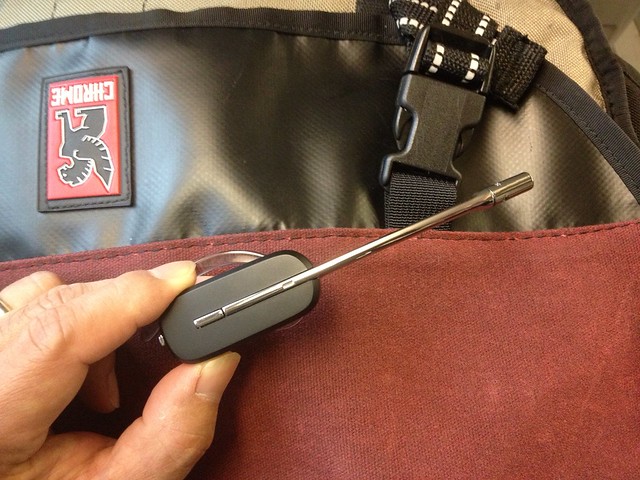We are all anthropologically cyborgs
I recently added a Google Talk capability to my wearable computer, Psittaceous [^Psittaceous]. Whenever someone sends me an instant message using Google Talk, it reads it out loud on the headset I am wearing. Although it is limited, I can also return simple chat responses by talking to the headset.
I thought this was a small addition to Psittaceous features, but I’ve been experiencing something very interesting. At the office, someone sent me a chat because he saw that I was not at the desk but I was online. As soon as he typed the message, I got it because Psittaceous read the message out loud on the headset. I was actually doing something just behind him, and responded him in person right away. He seemed a little startled as he was not expecting me to be there. I reminded him that I can receive Google Talk message that way.
I don’t know how well I described above experience here, but I felt as thought I have telepathy. In this situation, what people get first is a vibration of their phone. Then she takes her phone out, open the app (if the message does not show up on the lock screen), and stare at the screen to read it. My case, none of the actions is required. And as for a simple response, I just need to whisper, “Computer, tell her, ‘Thanks. I will get back to you soon’.” The message will be sent without typing.

Psittaceous eliminated the need for reaching out to the screen before the information is relayed to my brain, and that is another step before the exogenous components fused into my mind seamlessly.
When I think of it, I recalled a TED talk by Amber Case [^ambercase], and she is a “Cyborg Anthropologist”. In her TED talk [^ted], she argued that we are all cyborgs already whenever we stare at a computer screen or use one of your cell phone devices. We are able to retrieve information that does not exist in our memory and we are able to communicate real time with someone outside the reach of our voice. Nowadays, because we carry those devices always with us, we may feel as though half of our brain is lost without them. Yes, we may well be cyborgs already at least in an anthropological sense.
Psittaceous eliminated the need for reaching out to the screen before the information is relayed to my brain, and that is another step before the exogenous components fused into my mind seamlessly. Although, the current set up has a lot of limitation from the size of the device to the battery life, wearing it has been a good inspiration to my thoughts on technology and our daily lives.
If you have not checked out Amber Case’s TED talk, here it is:
[^Psittaceous]: I used to call it “chattypi” and my wife liked the former name. But I am thinking to run this software outside Raspberry Pi. So, I renamed it Psittaceous, which means parrot.
[^ambercase]: About - Amber Case
[^ted]: Amber Case: We are all cyborgs now | Talk Video | TED.com